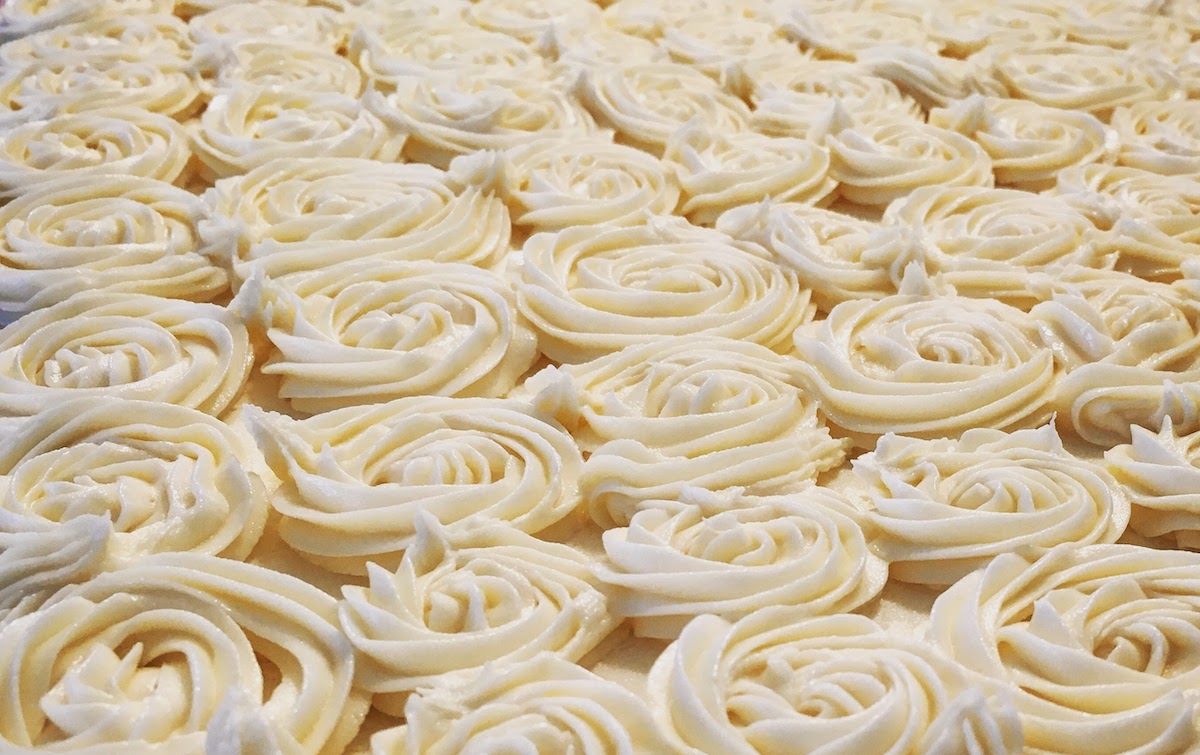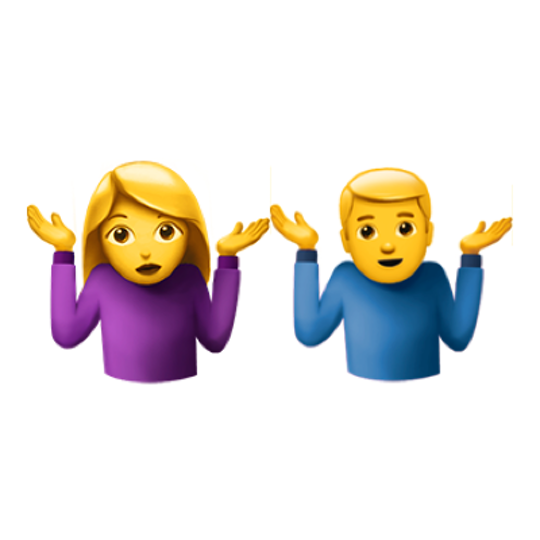I’ve gone through many transformations in my life. Some of them happened because my life changed in a way that made the transformation possible. Some of them happened because I stumbled upon the right way for me to make a change at the perfect time. You can count both of these types under the header of “lucky.” I have been lucky a number of times in a way that benefited me. I’ve also been unlucky a number of times that held me back.
The problem with luck is that you can’t plan for luck and there isn’t much to learn about yourself or your situation. You can put yourself in a position to be lucky, of course, but you can’t control what you’re bestowed with once you’re there. This presents a difficult challenge in times when you truly, sincerely, maybe even desperately want something to change.
But luck is only helpful in very specific ways. If you want to lose weight, for example, luck can only help you by:
- stumbling on the right book or article that changes your whole mindset
- meeting the perfect coach or gym partner or significant other that challenges you in just the right way
- getting a perfectly-timed coupon that triggers you to sign up to the gym
- delivering a winning lottery ticket that gives you all of your time back so you can devote yourself to exercise and healthy cooking
Of course, all of these can be short-lived. The changed mindset might fade over time. The gym buddy gets a new work schedule that doesn’t line up with yours. The gym might be so cheap that you don’t feel a strong motivation to stick with it. And the new-found wealth might just drive you to drink beer all day on the beach in Manuel Antonio.

So, for personal transformations, changes that require you to regularly do something different for the rest of your life in order to improve something about yourself, luck is a pretty bad strategy.
In these cases, I see willpower as being very similar to luck. I have fought willpower for most of my adult life. I’ve had it and lost it, over and over, for a long list of behavioral changes – exercising, eating better, less sugar, drugs and alcohol, focus, reading, programming, etc etc etc. As I read back through journals from a decade ago, I see this kind of thing over and over:
You need to do better
This is the time
You can’t keep doing this
It’s hard to read those being written month after month, year after year. What’s harder, though, are the ones maybe a week after when the will to change didn’t stick:
You’re the worst
How are you ever going to get this right?
Do I even care about my family if I can’t do this?
It hurts to read that. It hurt to write that. But it’s honest and it’s the result of not “being strong enough” to make an important change in my life. It’s the result of my willpower failing, once again, to bring about the changes that I need.
As I get older and, theoretically, wiser, my desire to brute force changes into my life has faded. Not only that, I have a much longer timeframe on which to reflect. Looking back at the positive changes I have made, it’s clear that my ability to “grin and bear it” has not been the deciding factor. In fact, the times where I stuck it out and sucked it up have typically resulted in either complete or partial backsliding on the things I set out to accomplish (see: the rollercoaster that is my body weight).
So, what’s going on here? Am I incapable of achieving certain things? Am I dealing with faulty internal wiring? Am I just being lazy?
In the end, all of the goals I want to achieve are an aggregate of many, many small choices over a long period of time. Losing weight is choosing the right foods meal after meal until the scale rewards me with a number that I like. Improving my fitness is making time to move my body several times a week for as long as it takes to feel capable. Drinking less alcohol and caffeine is the most simple of all: just saying no when the choice is available until the habit or dependency is manageable.
But it’s not about the goal, is it?
I don’t want to lose weight or start exercising or reduce my “happy chemical” intake just to do it and then revert back right after. The goal is to change the behavior for good. The goal is not actually a goal, it’s the reflection of a new trajectory.
I don’t think this is news to anyone looking to improve their overall condition in life. Whether you’ve done it and continued to do it, done it and reverted back, or have never tried to do it in the first place, you know that the goal is not where your work stops. The goal, in fact, serves very little purpose because what you’re actually trying to do is to change your behavior, adjust your habits, shift your thinking.
This is a helpful first step, getting past the idea that “I want to reach a goal” and, instead, think about the changes you want to make as “I want to change my behavior.” But this is not the only thing that needs to happen. Regardless of the outcome, we’re still talking about adding more work (struggle) or removing things that bring you pleasure (deprivation). As lazy, hedonistic beings, this means luck – stumbling into a solution that somehow persists for eternity – or willpower – adding a margin of effort that you must endure for eternity.
This is not a sustainable strategy for lasting change
I don’t want waste my hard work on this stuff and I also don’t want to feel like I'm depriving myself. I prove that every time I choose the cupcake instead of the apple, every time I buy a new bike part instead of saving my money, every time I write another line of code instead of getting some exercise. I choose, over and over, the thing I want in the moment instead of the thing I want later.

What’s happening here is a conflict of desire. I’m not failing at all. I’m an adult making a choice, in the moment, a choice to do the thing I want to do instead of the thing I “should” do.
Are my priorities messed up? Maybe. Am I a failure? I hope not. Am I happy in the moment? Definitely. Am I achieving what I set out to do. Nope.
Am I failing as a person and a husband and a father? It sure feels like it.
But I’m not.
I am not failing because I am making a choice. I might want to lose weight but I also want a cupcake. So I’m succeeding in choosing what I want in the moment.
What actually failed was an experiment.
I set out to make better choices but my motivation for the “right” choice in this case was not enough. I experimented by putting an apple and a cupcake in front of myself and I picked the cupcake. Over and over. The same experiment, 99 times out of 100, failed. The data is clear: when faced with this choice, I will not choose an apple.
So why am I running the same experiment over and over and over? I need to make a different choice but I keep giving myself the same options over and over, somehow frustrated when I get the same result.
What I need is a new experiment.
And this is the place where the work required to make a positive change goes from arduous to creative.
I have to figure out what needs to change for the results to be different than before. And, because this is an experiment, I don’t know what the answer is so I’m free to try many, many different things without hating myself for the outcome. I’m also free to work very slowly towards that outcome, learning along the way.
I want to say that this is a subtle change in thinking, a simple reframing that needs to happen but it’s so much more than that. It’s an absolution of guilt and a persistent path forward and a complete shift of blame.
Experimentation Works
Let’s take fitness as an example. I’ve worked out 3 or more times per week since the day after Christmas 2018. I’ve missed one or two weeks but neither time has completely derailed me, as it’s almost always done in the past. I didn’t really understand why this change happened until I looked back and examined what I did in the light of experimentation.
First, I realized that my only real option for hard exercise was going for a bike ride. I had associated “exercise” with “cycling” so if I wanted to exercise, I had to get on a bike. Cycling in December in Washington sucks a lot. It can also suck a lot in January, February, March, April, and often May. I have experimented year after year with cycling as a primary form of exercise and I have not been exercising regularly.
Year-round cycling as exercise experiment: failed.
So, a few years ago, I bought an indoor cycle trainer so I could ride indoors. I also signed up for Sufferfest, a video cycling program. I went on to ride a total of probably 10 times in 2 years indoors. I really and truly hated it.
Indoor cycling as exercise experiment: failed.
I also have a set of adjustable dumbbells that I’ve had for a very long time. I leave them right by my desk so I have no excuse not to pick them up. I move them from house to house, stub my toes on them, and use them a good 5-6 times per year. I also bought a set of exercise bands that I have never used.
Exercising at home in any meaningful way experiment: failed.
So far I’ve learned:
- Working out at home is not enjoyable
- Cycling is much more useful to me as recreation and transportation than it is a way to get fit
- Walking is nice but too low of an impact to be effective
I had enough failed experiments and data to know that I do not get a meaningful amount of exercise with the means that are currently at my disposal. At this point, I can keep trying the same things, likely coming to the same conclusion, or I can figure out something else to do.
- There is a rock climbing gym nearby
- My wife runs regularly and loves it
- There is a well-loved yoga studio nearby
- I used to lift weights and really enjoyed it
Wait, that last one … why am I not lifting weights anymore? I already know I won’t do it at home but there is a gym close-by. There was a down payment needed to start and monthly dues but my physical health, assuming I actually went, is worth much more than what it cost.
Hypothesis: if I join a gym with my wife, I could lift weights, have a workout buddy, and would be motivated to go because of sunk costs.
I knew the second that I started thinking about it that this was going to work. We signed up before the holiday break and have been going regularly since.
End of story, right? Not quite.
Like I mentioned above, I’ve skipped a few weeks since starting. The promise of enjoyable exercise (it’s still hard to go when you’re tired), a workout buddy (she wanes in motivation too), and the sunk cost (oh well) weren’t enough to get me there every week. The experiment was failing under certain conditions.
I took a step back and tried to figure out what was going on. Why did I skip workouts when I knew what was at stake? Once again, I was falling back to my willpower, which, predictably, has a poor success rate.
Through writing, introspection and talking it over, I figured out that the big internal drive to go was still to look better. I didn’t have an event I was training for (my motivation for the last big push to exercise before this one), my long-term health didn’t cut it (see: all the other changes I want to make), and the other drivers couldn’t pick up the slack.
I needed a new motivation.
Throughout my life, I’ve battled with depression and anxiety. I have a tendency to generate an enormous amount of stress around seemingly minor obstacles. I also find myself stuck in unhelpful and negative thought loops that often incapacitate me. I’ve always been able to get out of bed in the morning and, far more often than not, can find some inkling of motivation to keep pushing forward but it can be painful and debilitating at times.
But the one thing that can shake me out of it, even if it’s just for the remainder of the day, is hard exercise. If I can get my ass on a bike or put in headphones and go for a long walk, I can usually shake the sense of dread and foreboding that I’m regularly plagued with. And if I can do it on a regular basis, it stays away for longer periods of time.
It turns out that the thing that gets me into the gym or on a bike or in running shoes is not my desire to buy a smaller shirt size, it’s improving my mental health in a real way. The focus it takes to keep good form through a heavy lift or to not fall off the treadmill gives me a mini vacation from the negative thoughts and self-examination that I endure so often.
So when it’s time to make the choice between answering another Slack message or closing a GitHub issue and boosting my opinion of life as a whole, the choice is clear. In fact, there’s not really a choice to make. I put my cheap trainers on, grab my headphones, and head out the door.
Hypothesis: clearing my head through a few hours per week of hard work will improve my physical and mental health.
This experiment was a success.
Maybe your mental health will improve with some exercise. Maybe finding the money in your budget to join a gym is what you’ve been missing. Maybe you’ve never tried cycling and it’s your outlet. I have no idea.
My point of all this is not to tell you what I did so you can try the same. My point is that seeing your attempts as failed experiments rather than ways that you have failed gives you permission to not only try again without shame but to abandon the methods and techniques and diets and exercises and foods that have failed you.
If you can’t choose a carrot over candy, it’s the carrot that failed. If you can’t save your money for a vacation because you keep buying clothes, it’s the vacation that failed. If you can’t stop smoking despite a persistent cough, it’s the cough that failed.
If the motivation you keep in your mind for the things you want to change does not produce the change that you want, then the motivation has failed. Unless the conditions change, your experiment will produce the same outcome. Write down your conclusions, think up another hypothesis, and try something new.
< 2020-11-24 >
I just heard a great interview with James Clear, led by Sam Harris, and realized part-way through one of the answers that he was talking about exactly this. Interview is here, notes below are from 24:45 and onward.
- SH: Goals are enjoyed very briefly. Think about finishing a marathon: you finish and can spend a while after wringing out whatever satisfaction you can get out of reapeating that to yourself. But the process is the life of being a runner, someone who likes running after the marathon
- JC: You do not rise to the level of your goals, you fall to the level of your systems
- We are heavily focused on outcomes (lose 40 pounds, etc) but your outcomes are lagging measures of your habits. Your physical fitness is a lagging measure of your eating and exercise habits
- If there is a gap between your desired outcome and your daily habits, the daily habits will win
- Your current habits are perfectly designed to deliver your current results; whatever system you've been running has carried you, inevitably, to the place that you're at right now
- SH: The real goal to achieve is to find a process that is genuinely fulfilling
- You want to lift a certain amount of weight but the actual satisfaction comes in finding a way of working out that you actually love to do; it's satisfying in the way that a bad habit is
< Take Action >
Comment via:
Subscribe via:
< Read More >
Tags
Newer

Jun 27, 2019
Specializing vs Generalizing
Should you specialize and go deep or generalize and go broad? I'd argue they they are two sides of the same coin.
Older

Jul 10, 2018
Pitfalls of Being a WordPress Developer
Something happens to you as a developer when you start on and stick with a single platform for a long period of time. As you get better and better at that platform, you get further and further away from the rest of the ecosystem.